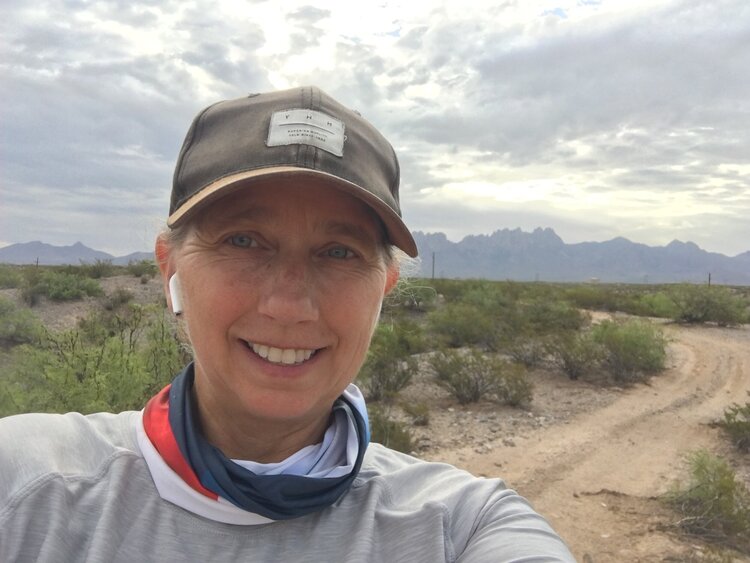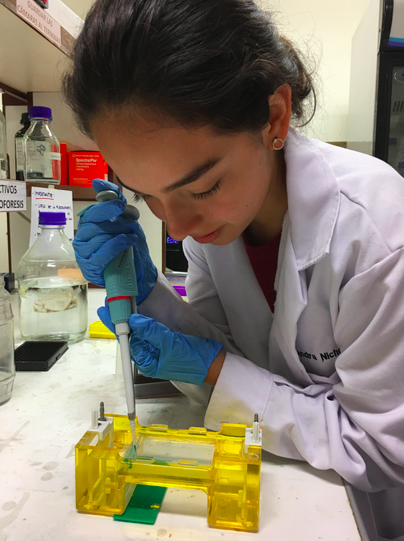I have just finished my third year mentoring an iGEM team.
Is it possible for students to genetically modify bacteria to turn red? How about modifying bacteria to extract mercury from the environment? Or to detect Cadmium in a product? Does it sound like Science Fiction to you? As George Church, founding father of synthetic biology, claims, "It is only science fiction until you remove the fiction" (Mezrich 2017). Indeed, the FDR-HB_Peru iGEM (international genetically engineered machine) team is working to do this! And, they have been the only South American high school team to be a member of iGEM for these past three years. In fact, at the 2018, 2019, and 2020 international competitions, our team was the only high school team from the entire Southern Hemisphere to compete! During non-pandemic times, teams gather in October in Boston, MA (USA), where students present their research in a 20-minute oral presentation as well as poster format. Furthermore, these high school students comfortably rub shoulders and discuss scientific progress with college students, graduate students, and Ph.D. researchers. This year, in 2020, the iGEM organization managed to host this amazing experience online!
What are the additional benefits of having an iGEM team? Our students have learned the theory and practice of synthetic biology in seeking to solve a global problem through genetically engineering bacteria to perform a task of their wishes. During the 2020 season, they learned about cell-free alternatives to their project. They have collaborated with local companies and with Universities to solve their problem. And they have reached out to the community by teaching STEM lessons to elementary students, creating infographics, presenting seminars, and delivering a Ted Talk! Even this year, during the pandemic, they held workshops. All of their own initiative.
It all started back in 2017 with a visit to T.A.S.A., a local company that is the largest distributor of anchovy-based fishmeal in the world. There the team discovered that the company regularly tests for 20+ pollutants in the fishmeal before distributing it throughout the world. If any pollutant is above acceptable standards, the fishmeal is diluted, still resulting in the contaminants shipping out and being fed to fish or livestock in other parts of the world where it might ultimately end up on a dinner plate!
The team set about to come up with a solution, using synthetic biology, to remove the neurotoxin mercury, one of the contaminants tested for, from the fishmeal before distribution. We didn't have the expertise or lab equipment necessary to attack this problem so we enlisted the generous help of Dr. Daniel Guerra from Cayetano University in Lima. He, along with his graduate student Keren Espinoza, opened up his lab to us to conduct our experiments. Furthermore, Keren taught students the fundamentals of synthetic biology and guided them through the process of learning the skills they needed to conduct the experiments. The students had many brainstorming sessions with Daniel and Keren as they began designing and engineering their construct that would make bacteria extract mercury from the environment. Cayetano was in the process of adding a synthetic biology major to their offerings and we were the guinea pigs in this process. They also received iGEM DNA from us that helped them with this start-up. So, it was a win-win for everyone.
In the following year, we were able to build up a corner of my classroom to complete the synthetic biology work at our high school, eliminating the need to travel. We still collaborated with Cayetano and in 2020 the University had its own team. We also recruited students from another high school, Hiram Bingham for the 2019 and 2020 seasons. With them came their amazing mentor, Dr. Claudia Muñoz who became a wonderful collaborator and friend. For the 2020 season, an additional colleague from my school joined us, Mr. David Kostial. And thus we grew.
To be a competitive iGEM team, students must make a connection between their synthetic biology and the real world. Thus, our team formed a "Hardware" group in which they began the design process for a container in which the reaction between the modified bacteria and the fishmeal will take place. As the project evolved, they moved on to developing a dipstick that fisherman can use on the boat to detect Cadmium levels before the anchovies are processed into fishmeal.
Additionally, it is a requirement to have a human practices component of your work. This involves reaching out to the community to educate the student, parent, and greater community about synthetic biology and STEM-related topics. Our students chose to collaborate with a club at our school that teaches English to the children of our staff on Saturday mornings. The iGEM team created and compiled inquiry-based science lessons that additionally exposes these young students to science and scientific terminology. They join the Habla Roosevelt club on Saturdays to deliver the lessons. They also integrated a Girls Can! program in which they go into 5th-grade classes and specifically work with the girls to foster interest and confidence for girls in STEM-related fields. To disseminate information in the "modern way, they have published an online FDR science journal where they educate the community about science, especially synthetic biology. Furthermore, they presented a seminar to the teachers and parents at the school about synthetic biology and their research as well. This work has continued to evolve into additional presentations, workshops, and even a TEDxYouth talk (View here). All this in addition to doing the lab work!
Finally, all teams must record their work and efforts on a team Wiki page that has a strict deadline on which all editing is cut-off. Here you can see the development of our team through their Wikis over the years: 2018, 2019, and 2020.
As a result of all of their efforts, they were awarded the AASSA Global Citizen Award in March 2019. And, after presenting T.A.S.A. with the work they've done, T.A.S.A. agreed to provide a $2000 sponsorship of the team in the 2019 season. Our work with T.A.S.A. during the 2019 season with the shift from removing Mercury to detecting Cadmium won the team the Best Integrated Human Practices award at the Giant Jamboree competition in 2019. Furthermore, our outreach work earned us the Best Education and Public Engagement award. In 2020 we furthermore earned a silver medal at the virtual iGEM competition.
iGEM is student-driven higher-level work. How can you foster this? Get help! Global problems aren't solved by one person or even one group alone. Solving global issues requires multi-level collaboration. What a better way to get students working and thinking like true collaborators and think-tank experts by forging collaborations with colleagues at your school and local universities. Our team had support not only from me (IB Biology/ESS) but our IB Physics teacher, Coding teacher, a visiting professor, and our IT department. The work simply could not have been done without our collaboration at Cayetano University.
Read what students have to say about their iGEM experience:
"iGEM helped me realize how much I like synthetic biology and that I want to study it as a career..."
"I feel immense pride in being part of this club"
"...this team, or I should say 'this family'....I always wanted an environment where we could learn synthetic biology, but I didn't expect the amount of knowledge and lab experience we've all gained...I hope that everyone will get a chance to experience what iGEM brings to the community and I cannot wait for the next season to start with new people joining our family!"
"It's a team of intrinsically motivated students. It's a team that has learned to work together. It's a team of that is proud of work they have done. That is truly special. Really I don't think you'll find that in the average classroom."
"I joined iGEM and had no idea what to expect from it, but you gave me this feeling of confidence so I kept on attending sessions...and iGEM became one of the few places where I felt completely safe and identified."
Read up on iGEM, consider the benefits and the possibility of starting your own team. It's not for the faint-hearted. It requires a lot of work. But it is worth it.
Mezrich, B. (2017). Woolly: The True Story of the Quest to Revive One of History’s Most Iconic Extinct Creatures. Simon and Schuster.





